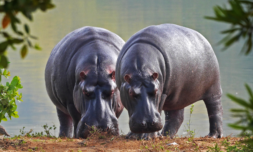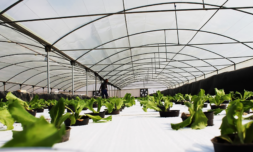In recent years, Ghana has been grappling with a crisis that is endangering its land, water and future economy. ‘Galamsey,’ illegal small-scale mining is a growing epidemic, with devastating effects on the environment.
Galamsey, derived from the phrase ‘gather them and sell,’ refers to the widespread practice of illegal small-scale gold mining in Ghana.
What began as a source of livelihood for local communities has evolved into a large-scale environmental crisis. Global gold prices remain high, and miners, many unlicensed, flock to Ghana’s gold-rich areas. They operate with little regard for the environment, razing land, contaminating rivers, and damaging entire ecosystems in a relentless pursuit of wealth.
The unregulated nature of galamsey has attracted both local and foreign participants. While many Ghanaians partake in the trade as a means of survival, there is an influx of foreign nationals, particularly from China.
According to reports, these foreign miners often have access to more sophisticated equipment, further intensifying the destruction of Ghana’s environment. The government has struggled to contain the menace, despite numerous interventions.
The environmental toll of galamsey is staggering. Ghana’s Forestry Commission has raised alarm over the widespread devastation of forest reserves. According to the Commission, 34 forest across the country have been impacted by illegal mining activities. Close to 5,000 hectares of land, once lush with biodiversity, have been stripped bare, and vast areas of Ghana’s pristine landscapes have become wastelands.
The most immediate consequence of galamsey is deforestation. Miners often clear large tracts of forest to access gold-rich soil. This destruction of vegetation not only harms local wildlife but also disrupts the balance of ecosystems that support agriculture, a key pillar of Ghana’s economy.
The loss of forest cover has continuously exacerbated soil erosion, leading to the degradation of arable land that many rural communities depend on for their livelihoods.
Water bodies have also been severely affected. Main rivers such as Pra and Ankobra – that were once sources of drinking water for local populations – are now heavily polluted with toxic chemicals, including mercury and cyanide, used in the gold extraction process. Experts predict that the country might need to import water by 2030 if the crisis continues.
While the immediate benefits of galamsey may seem lucrative to those involved, the long-term economic consequences are far-reaching and devastating. Agriculture, a cornerstone of Ghana’s economy, is under siege. As arable land is destroyed and water sources contaminated, the livelihoods of farmers are increasingly at risk.
Beyond this, the broader economic implications are even more alarming. Ghana is Africa’s largest cocoa producer. While legal mining operations contribute greatly to the country’s GDP, illegal mining activities have lessened cocoa production to under 55% of its seasonal output. Galamsey has also wiped out over 100,000 acres of cocoa in the Mankurom region.




















